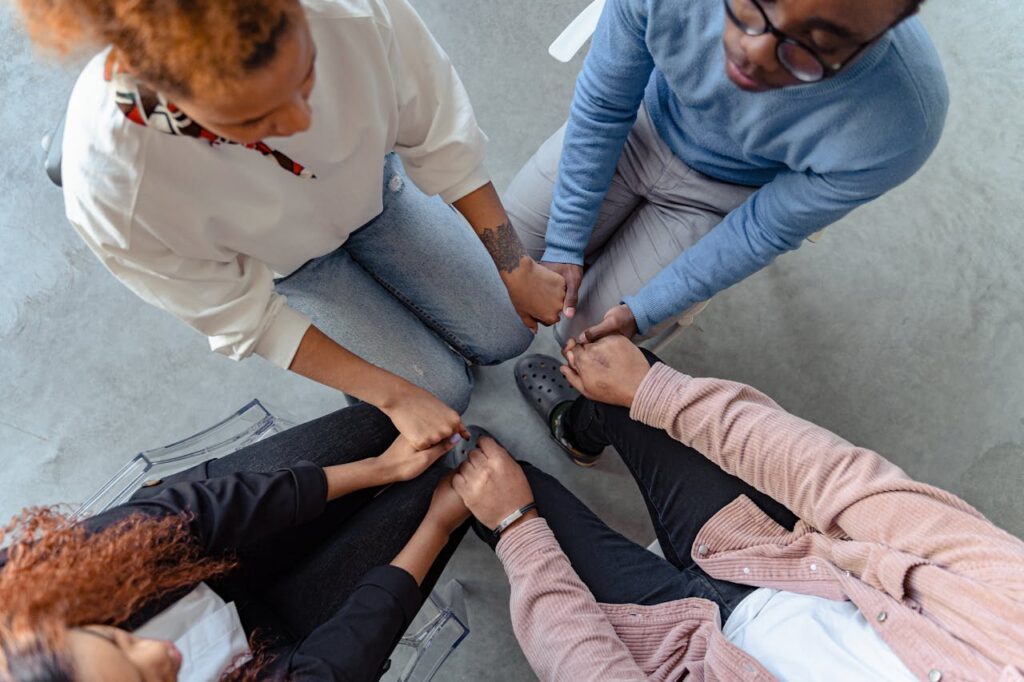Building a Stronger Future: Life After Rehab in Tranquility Recovery Center

Life after rehab brings both hope and challenge, but with the right support, it becomes a chance to build something stronger and more meaningful. At our luxury rehab in Los Angeles, clients learn that recovery is not a finish line but a lifelong process of growth. Adjusting to life after rehab requires structure, self-awareness, and ongoing care. Our team helps each person develop a plan that blends therapy, skill-building, and emotional support. Life after alcohol rehab or drug treatment may feel uncertain at first, but small, consistent steps create lasting change. Recovery after rehab means redefining routines, relationships, and self-care to sustain a healthier, more confident life.
How Does a Personalized Aftercare Plan Strengthen Recovery?
A personalized plan helps each person stay grounded once treatment ends. Through careful assessment, our team designs strategies that match every client’s triggers, strengths, and progress. Family therapy in addiction treatment plays a key role here because loved ones are often part of both recovery and relapse prevention. Clients receive ongoing therapy sessions, regular check-ins, and access to community support networks. These steps make managing triggers in post-rehab life less overwhelming.

Accountability and communication are essential—relapse prevention is not about perfection but awareness and action. When someone knows exactly what to do after a craving or setback, confidence grows. This clarity makes adjusting to post-rehab life easier, helping clients focus on rebuilding routines instead of fighting uncertainty.
Key Components of a Personalized Aftercare Plan
Even the strongest recovery needs a roadmap to stay steady. A solid plan keeps progress measurable and accountability clear.
- Regular therapy and progress tracking to address emotional ups and downs
- Relapse prevention strategies built around specific triggers and stressors
- Support groups that reinforce healthy coping and social connection
- Scheduled check-ins with counselors to refine coping skills
- Gradual independence supported by professional follow-ups
How Can Rebuilding Relationships Support Long-Term Sobriety?
Healing connections with others often marks the true start of life after rehab. Many clients face strained relationships that need honesty and time to mend. Inpatient detox San Fernando Valley programs often lay the foundation for this by stabilizing clients before deeper emotional work begins. Our center continues that process through family sessions, alumni programs, and social support that fosters accountability.
Rebuilding relationships after rehab helps clients rediscover trust and empathy while building resilience for the future. Healthy communication replaces secrecy, and shared understanding replaces shame. These improved dynamics reduce isolation—a major relapse risk—and remind each person that recovery thrives in connection, not solitude. Strong relationships help maintain motivation when challenges arise, reinforcing that sobriety is about community as much as self-discipline.

Ways to Strengthen Relationships in Recovery
Trust doesn’t rebuild overnight—it grows through small, steady actions that prove commitment. Emotional honesty and consistency make all the difference.
- Attend family sessions to repair trust and communication
- Stay transparent with loved ones about emotional struggles
- Surround yourself with peers who encourage sobriety
- Express gratitude to those offering genuine support
- Practice forgiveness—both for yourself and others
Why Are Healthy Routines and Life Skills So Important?
Daily structure keeps life after recovery stable and purposeful. Establishing a consistent schedule makes recovery feel achievable. Residential treatment Los Angeles experts highlight that routines prevent relapse by keeping both the body and mind engaged. At our center, clients practice developing a daily routine after rehab that supports mental clarity and physical wellness. They learn time management, nutrition planning, and budgeting skills that make independent living smoother.
Building healthy habits after rehab—like regular exercise, proper sleep, and balanced meals—helps regulate emotions and energy levels. These routines build confidence and make maintaining sobriety after rehab less stressful. Practical skills such as job readiness and goal setting encourage autonomy, showing clients they can rebuild their lives step by step. Adjusting to post-rehab life becomes easier when daily actions reflect long-term goals and progress feels visible.
Building Daily Habits That Support Stability
Healthy routines turn discipline into a lifestyle. When structure becomes second nature, staying sober feels less like a task and more like living well.
- Set consistent sleep and meal schedules to reduce stress
- Keep a daily planner to manage time and goals
- Include fitness or outdoor activity to boost mood naturally
- Practice mindfulness or meditation to stay centered
- Reflect on wins each day to build confidence and resilience
How Does Continuing Therapy and Holistic Healing Promote Balance?
True stability in life after healing comes from ongoing care that nurtures both the mind and body. Many clients continue therapy sessions that include cognitive behavioral techniques, group work, and holistic approaches. Our team incorporates practices such as yoga, art therapy, and equine therapy to promote mindfulness and reduce anxiety. These programs remind clients that self-care in post-rehab life is not optional—it’s foundational. Emotional balance supports physical health, while spiritual grounding strengthens resilience.
Holistic recovery methods also help people manage stress, a common relapse trigger. Through continued guidance, clients discover that maintaining sobriety after rehab means constantly learning new ways to cope, connect, and grow. Each holistic activity adds another layer of strength, helping clients find purpose in post-rehab life and sustain their wellness long term.

Integrating Holistic Healing into Everyday Life
Balance comes from nurturing body, mind, and spirit equally. Holistic approaches keep recovery sustainable beyond traditional therapy, offering emotional grounding and long-term peace of mind.
- Join group therapy sessions to stay socially connected
- Use art, journaling, or music to express emotions safely
- Try yoga or breathing techniques to ease anxiety
- Participate in equine therapy for addiction treatment to build trust, patience, and emotional awareness through connection with animals
- Spend time in nature to reset mentally and emotionally
- Schedule self-care rituals that reinforce calm and stability
Finding Strength and Hope in Life After Rehab
Life after rehab is not about returning to who you were—it’s about becoming who you’re meant to be. With compassion, structure, and ongoing guidance from our Sun Valley team, clients move forward with confidence. Adjusting to life after recovery may bring challenges, but it also brings freedom, purpose, and lasting change. Our holistic programs ensure that recovery after rehab remains active, engaging, and deeply personal. Life after drug rehab or alcohol treatment is where resilience turns into growth, and healing becomes a daily practice. Ready to begin building your stronger future? Contact us today to learn how our Sun Valley Recovery Center can guide your next steps toward lasting wellness and stability.
You Have Questions
We Have Answers
At Tranquility Recovery Center, we offer treatment for a wide range of addictions, including alcohol, opioids, prescription drugs, and illicit substances. Our team tailors each program to meet individual needs, focusing on both the physical and emotional aspects of recovery.
At Tranquility Recovery Center, we offer treatment for a wide range of addictions, including alcohol, opioids, prescription drugs, and illicit substances. Our team tailors each program to meet individual needs, focusing on both the physical and emotional aspects of recovery.
At Tranquility Recovery Center, we offer treatment for a wide range of addictions, including alcohol, opioids, prescription drugs, and illicit substances. Our team tailors each program to meet individual needs, focusing on both the physical and emotional aspects of recovery.